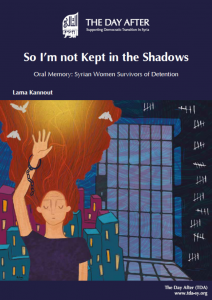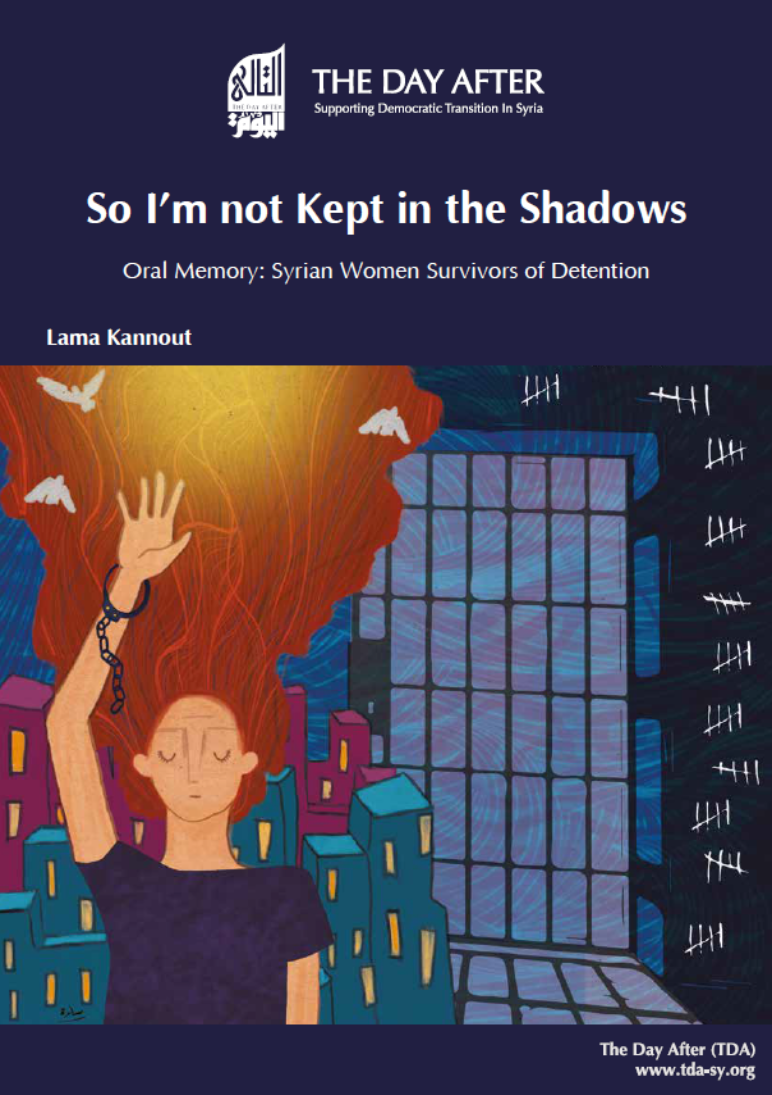 Publication date: October 2019
Publication date: October 2019
Oral histories from a gender perspective, when based on narrative anecdotes and oral testimony, are particularly important during revolutions, armed conflicts and wars. They bear witness and lend essential documentation to history. They challenge the unilateral narratives of victors and power mongers. These histories celebrate personal experiences, moving them from margin to center. They challenge and seek to fundamentally change power relations and structures within society, and work towards the democratization of history. They highlight women’s struggles for freedom, equality and social justice; they provide alternative sources of knowledge about their roles and achievements; they hold on to the belief that the personal is political.
This book documents the experiences of women survivors of arbitrary detention who participated in workshops and trainings organized by The Day After, and these stories represent part of women’s experiences with political and social violence as well as other forms of violence. Each of their experiences has its own specific and different effects. The book was limited to 11 stories only for several reasons; most notably the nature of psychological suffering and the distress of the survivors, as well as the difficulty of movement from their various locations, and their fear of being named in their testimonies lest any of their relatives are arrested or questioned by security forces in Syria, and their fear of risks or consequences if their names were disclosed.
